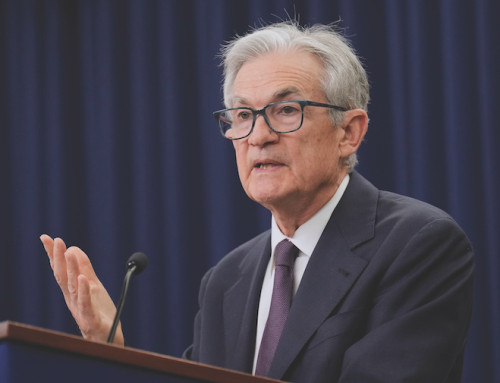A failed judicial candidate was temporarily suspended from the practice of law last week when a divided Ohio Supreme Court determined he made patently false statements about his opponent during the last leg of his campaign.
Ronnie Michael Tamburrino of Rock Creek had been charged by the high court’s Disciplinary Counsel with violations of the Code of Judicial Conduct in a two-count complaint filed with the Board of Professional Conduct.
According to the complaint, in 2014, Tamburrino disseminated campaign materials about his opponent, Judge Timothy Cannon of the 11th District Court of Appeals, either knowing they were false or in reckless disregard of their falsehoods.
After a hearing conducted by a panel of the Board of Professional Conduct, the board adopted the panel’s report and recommended a one-year suspension from the practice of law with the final six months stayed.
In his objections to that recommendation, Tamburrino argued before the Supreme Court that his alleged violations were not supported by the evidence, that Ohio’s disciplinary process regarding campaign speech is unconstitutional and that his due process rights were violated.
“We overrule Tamburrino’s objections and adopt the board’s recommendation,” Justice Judith Lanzinger wrote in the opinion she authored on behalf of the high court’s majority.
According to the facts of the case, in the final weeks leading up to the Nov. 4, 2014 election, Tamburrino’s campaign ran two, last-minute negative campaign ads against Judge Cannon.
The first commercial stated that Cannon “won’t disclose his taxpayer funded travel expenses.”
“In fact, however, in the years leading up to the election, Judge Cannon had consistently disclosed his travel expenses to the Ohio Judicial Conference, and neither Tamburrino nor anyone else had asked Judge Cannon to disclose his travel expenses to them,” Lanzinger wrote.
Despite notifications from Cannon’s campaign that the statement was false, Tamburrino maintained that it was true and continued to run the ad.
The second ad criticized Judge Cannon’s concurring opinion in State v. Andrews (2008-Ohio-3993).
Court documents describe the commercial as beginning with a depiction of a faceless, robed judge standing at a courtroom bench, pouring Jack Daniels whiskey and serving it to children.
The voiceover then stated, “Everyone knows that a judge would never serve alcohol to kids in a courtroom. But appellate judge Tim Cannon did something almost as bad.
“In the case State v. Andrews, Cannon ruled that cops couldn’t enter a house to arrest a parent who was hosting a teenage drinking party, because he felt teenage drinking wasn’t a serious crime. Cannon doesn’t think teenage drinking is serious. What else does he think isn’t serious? We can’t afford Tim Cannon’s bad judgment. Elect Ron Tamburrino to the 11th District Court of Appeals.”
In the Andrews case, the 11th District court held that police needed a warrant before entering a home without a homeowner’s consent and searching a party where underage drinking was occurring.
In his concurring opinion, Judge Cannon wrote, “While I emphasize that I do not wish to impede an officer’s duties to enforce the laws against underage drinking,” there was not enough evidence of “exigent circumstances to validate a warrantless forced entry and search of (the) home.”
“While I recognize the great concern for the problems associated with contributing to inappropriate underage drinking,” Cannon continued, “I must also recognize the rights afforded to an individual, secure in the environment of his or her home, by the Fourth Amendment.”
Despite a press release from Cannon’s campaign regarding the falsehoods in both commercials, Tamburrino did not take either commercial off the air.
In its review of the board’s recommendations, the Supreme Court noted that when the commercials ran, Tamburrino was a judicial candidate and was obligated to comply with the Code of Judicial Conduct.
Under the code, candidates are forbidden to knowingly or recklessly distribute false information concerning another judge or candidate.
“After Tamburrino’s campaign began airing the teenage-drinking commercial, he was put on actual notice that the statement was false by Judge Cannon’s press release stating that it was false,” Lanzinger wrote. “But Tamburrino continued to allow the advertisement to appear on television.
“At that point, any question of recklessness was gone and certainly Tamburrino was broadcasting a statement that he knew to be false.”
With regard to the expense disclosure commercial, the high court’s majority held that “Judge Cannon has consistently disclosed his expenses to this very court.”
Lanzinger wrote that the evidence that Tamburrino violated the Code of Judicial Conduct was “clear and convincing” and the majority held that the insinuations made in the commercials constituted “conduct that is not consistent with the independence, integrity and impartiality of the judiciary.”
In adopting the board’s recommended sanction, the majority noted Tamburrino’s lack of remorse as an aggravating factor and his propensity to attack anyone who disagreed with him.
“After Judge Cannon denounced Tamburrino’s teenage-drinking commercial, Tamburrino accused Judge Cannon — as well as the author of the majority opinion in Andrews, Judge Mary Jane Trapp — of ‘making up their own facts … to support the court’s opinion.’” Lanzinger wrote.
Tamburrino also apparently attacked the Ohio State Bar Association, which had issued a letter criticizing the false commercials.
Court documents state that he called the OSBA “nothing more than a secret society of lobbyists in Columbus masquerading as lawyers supporting Cannon’s campaign on Halloween” and claimed that the OSBA’s action was “orchestrated in a smoke-filled room in Columbus by supporters of Cannon’s campaign, and nothing else.”
“Tamburrino’s misconduct impugned the integrity of his opponent as a jurist and as a public servant,” Lanzinger concluded. “It endangered the independence of the judiciary and lessened the public’s understanding of public records and the protections of the Fourth Amendment. We agree with the board that an actual suspension is necessary in this case.”
The majority adopted the board’s recommendation and suspended Tamburrino from the practice of law for one year with six months stayed.
In her dissent, Justice Judith French called Tamburrino’s statements “unquestionably distasteful” but held that they were “reasonably susceptible to truthful interpretation.”
“I give no credence to Tamburrino’s statements about his opponent, and neither, apparently, did the voting public, who re-elected Judge Cannon in 2014,” French wrote. “But we must protect speech even when — and, perhaps, especially when — we dislike it. Even vehement, caustic, and unpleasantly sharp attacks leveled at candidates for public office enjoy ‘breathing space’ under the First Amendment.”
Justice Sharon Kennedy joined French in her dissent.
Joining Justice Lanzinger to form the majority were Chief Justice Maureen O’Connor and Justices Paul Pfeifer, William O’Neill and Terrence O’Donnell, who concurred in judgment only.








